Increasing numbers of Nigerians are suffering from conditions and diseases connected with diet; hypertension, diabetes, heart disease and atherosclerosis, as well as certain types of cancer. The number of overweight and clinically obese Nigerians is steadily increasing. Much of this can be attributed to lifestyle changes and poor food choices. It saddens me to see the numbers of people who make poor choices based on misinformation or lack of information. The same Nigerians who will avoid palm oil because they believe it contains cholesterol (It doesn’t!!) will then go and eat imported packet noodles with all kinds of unhealthy additives, or worse yet, feed them to a child. There are many Nigerian foods that everybody should be eating.regularly Draw-soups are right up there with the best superfoods.
“Draw-soups”, our mucilaginous soups that try to escape as you take them towards your mouth and can make a mess of your shirt if care is not taken, are endowed with this ‘draw’ character by the presence of a particular type of soluble fibre. It is similar in nature to the glucomannan supplements sold to help with weight-loss, blood glucose regulation and digestive disorders. In my own work, I have found that our natural draw-soups are great for digestion and I have used them to good effect in designing diets for clients needing to lose weight, lower blood pressure and kick type-2 diabetes.
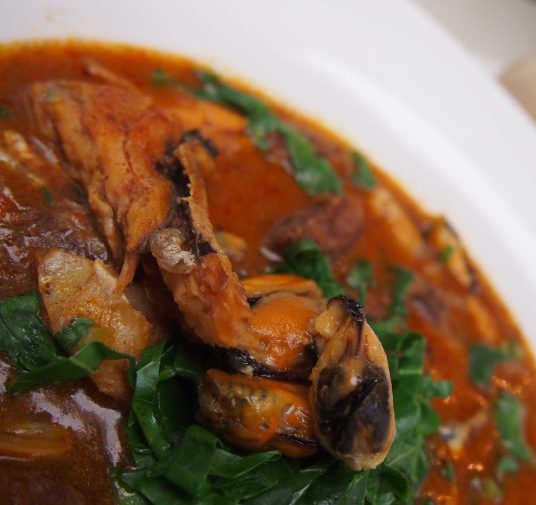
Ogbono soup. Photo credit: The Executive Mama Put
Ogbono / apon / akpon / dika: The seeds of the wild mango, (Irvingia gabonensis) can rightly be called a superfood. Like most nuts, they are rich in healthy fats and protein. Studies have demonstrated that regular use lowers body-weight as well as lowering (bad) LDL cholesterol while increasing (good) HDL cholesterol. Without getting too deep into the science, ogbono works in three wonderful ways; firstly, it supplies healthy nutrients for the body, secondly, it positively influences the eater’s leptin and adinopectin levels which affect how they burn or store fat and thirdly, the soluble fibre that gives it the ‘draw’ (makes it mucilaginous) is an effective appetite suppressant. This benefit of suppressing appetite is an excellent tool that I often use to help clients with portion control, eaten slowly, ogbono soup will make the eater feel full quicker than other soups.
The effects of ogbono are so pronounced that it is being packaged and sold as a weight-loss supplement in America and Europe.
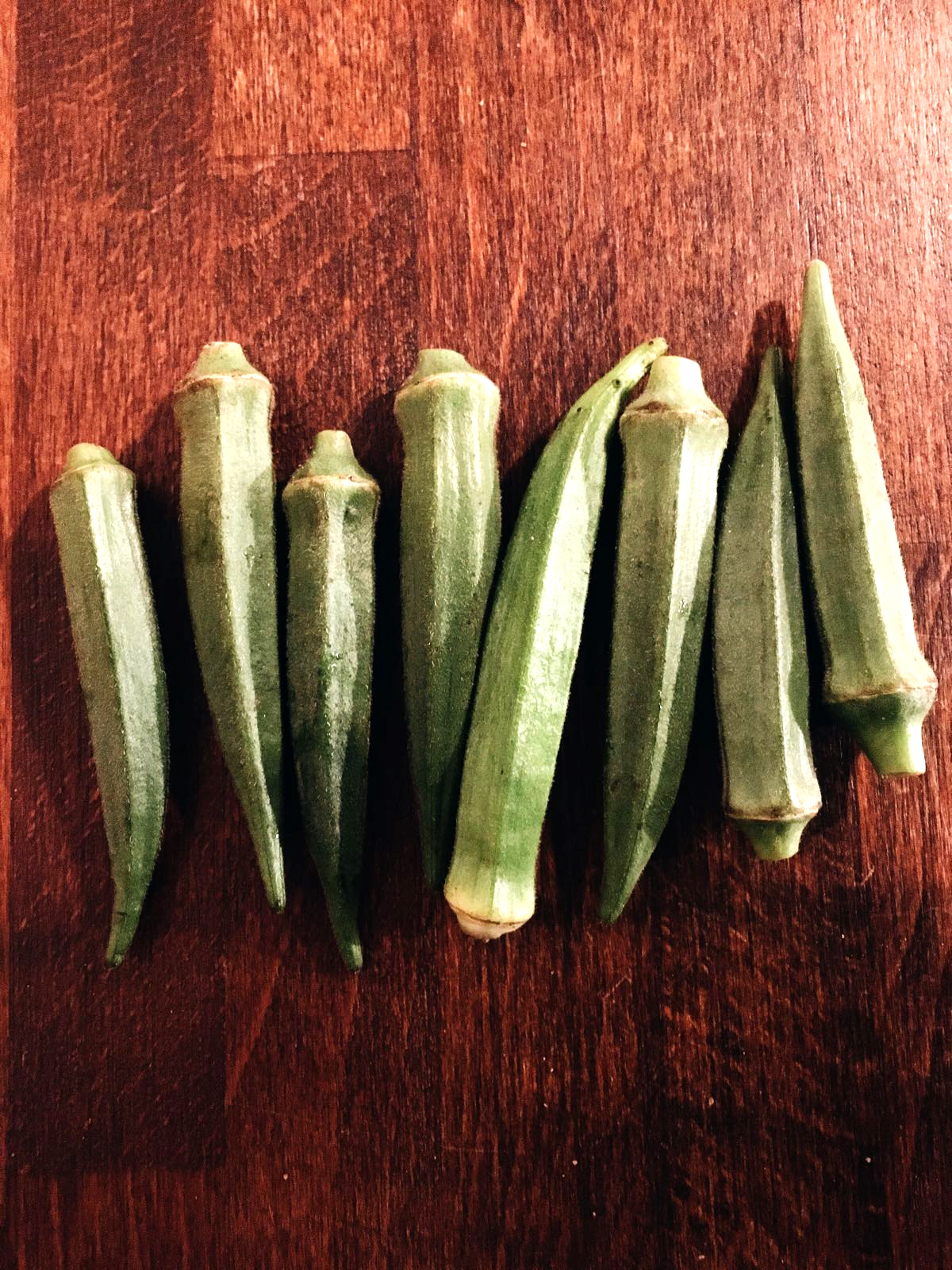
Fresh okro
Okro / ila / okwuru / kubewa / lady’s fingers: The green seed-pods of the okra plant, (Hibiscus esculentus or Abelmoschus esculentus) a superfood by any measure, are rich in health-improving nutrients. Okro is a great source of vitamins K, C, A and B6 as well as folic acid. Its mineral benefits include magnesium calcium and potassium.
From a macro-nutrition point of view it is also a great choice as it delivers these benefits with a tiny addition to your calorie count. Okro is one of those foods that you can eat as much as you like of with no worries.
Like our other mucilaginous foods, it has appetite suppressing qualities from the soluble fibre that makes it ‘draw’. Scientific studies have also found that it is antidiabetic, anti-inflammatory and a powerful antioxidant which makes it a great food for combating cancer-causing free radicals in our bodies. It also has been found to lower blood pressure and cholesterol.
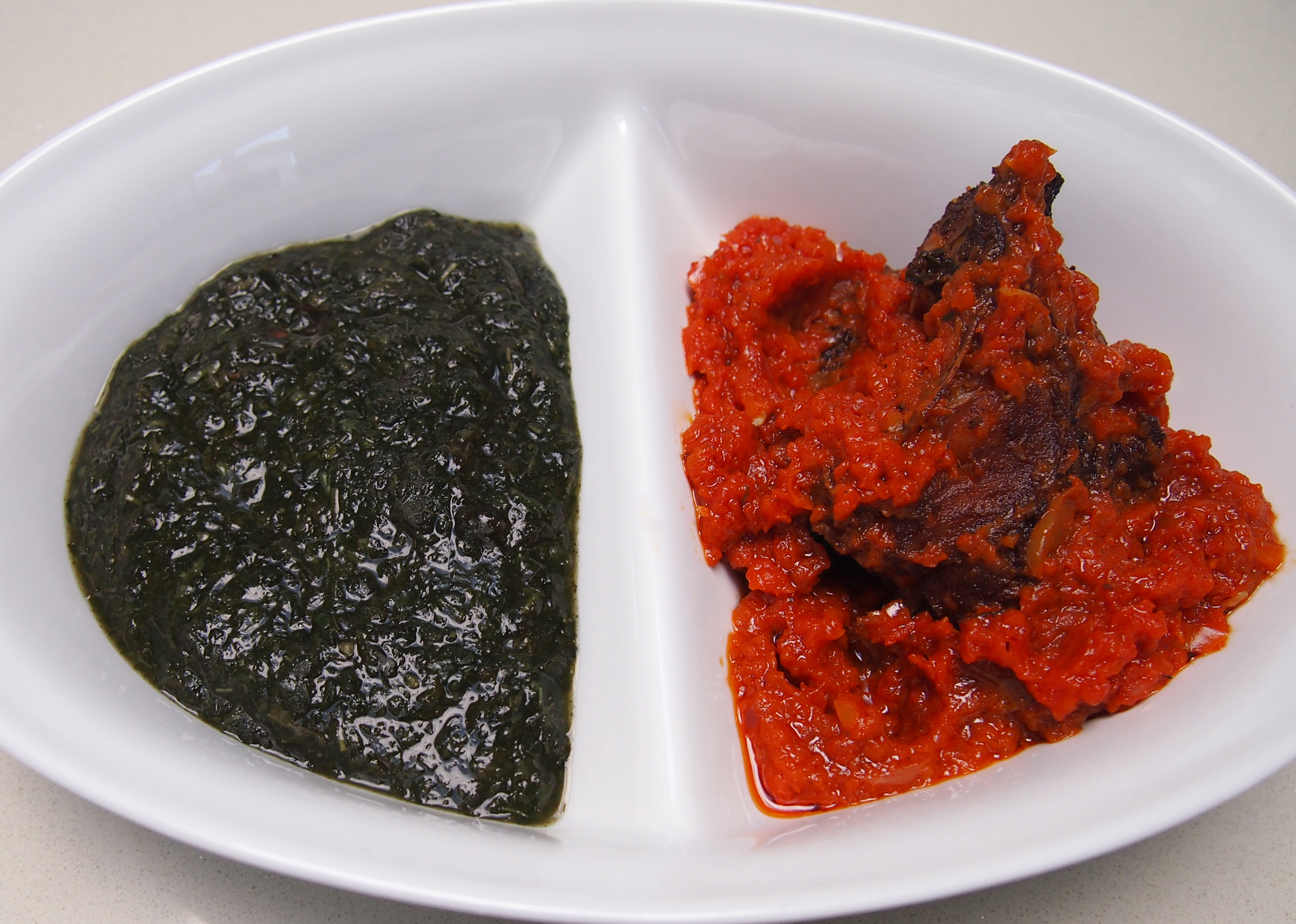
Ewedu. Photo credit: The Executive Mama Put.
Ewedu / kerenkere / ayoyo / molokhia / Jew’s mallow: This third draw soup is another great natural Nigerian food brimming with nutritional benefits. Made from the leaves of the Jute plant (Corchorus olitorius) ewedu is rich in minerals; potassium, iron, calcium, magnesium and selenium.
It’s a good source of Vitamins, B3, B6, E, K, and A. and like okro, contains antioxidant compounds, useful in defending against cancer. Like the other two draw-soups, its mucilage helps lower cholesterol, improves digestive transit and adds to the feeling of ‘belle-full’ness, thereby aiding weight-loss.
Again, like okro, it lowers blood pressure having both diuretic and vasodilatory components . As a source of selenium, this particular draw soup is ideal for women approaching or in menopause as well as those with thyroid issues. It is great for people with weak hair and nails.
Globalisation means that western companies are seeking solutions to first-world problems in developing parts of the world with naturally healthy populations. Sadly, the trade-off is that people in developing countries are abandoning their natural lifestyles and diets in exchange for the obesity, heart disease and diabetes of the ‘developed’ world. I wouldn’t be surprised to find a modern Nigerian rejecting ogbono soup while taking ‘wild mango seed wonder weight-loss supplement’
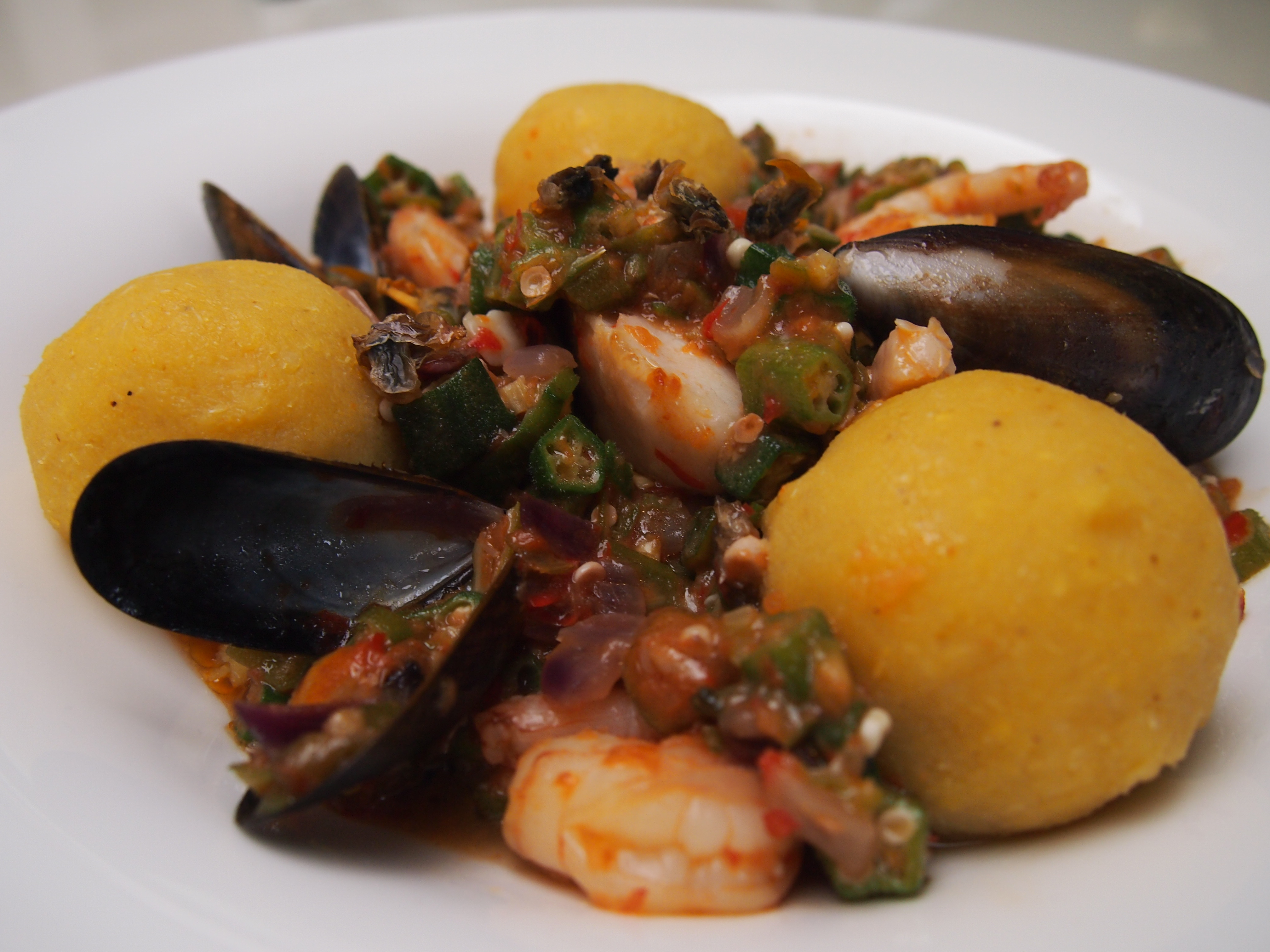
Okro soup. Photo credit: The Executive Mama Put
Unlike ogbono which is very ‘niche’ and comes from trees that need years to come to fruit, okro and ewedu are less likely to end up as supplements on the shelves of San Francisco’s health-food stores. These two greens are so easy to grow, cook and eat that no big pharmaceutical or supplement company is going to want to point out how good they are for you. If they promote these veggies in an effort to sell extracts, people across the world will simply use the fresh version as a smoothie ingredient and the profits will go to the farmers. (well, actually to the marketers of farm produce) Luckily for us, they are already mainstays of Nigerian diets and all we have to do is keep eating them.
I have listed a few articles below but to be perfectly honest, after studying these, I set more store by having seen my own clients freed from type-2 diabetes, lower their blood pressures and drop inches and pounds than by a laboratory report telling me that the 30 people that took a supplement lost 5kg more than the 30 that took a placebo or that 100 white mice showed a 30% reduction in inflammation of the liver when fed an extract of okro for 60 days.
Wetin you dey chop?
 Major Abs’ Takeaway
Major Abs’ Takeaway
The obvious takeaway from this article is that you should eat these three draw-soups regularly. I will, however, add a word of caution; this is not a license to eat as much swallow as you like. Ogbono can not fulfil its weight-loss function is you eat it with a kilogram of gari.
A large bowl of any of these soups, with fish or meat is a great meal in itself and anybody looking for a more aggressive approach to weight-loss can forgo the accompanying swallow entirely. Grab a spoon instead. A halfway-house approach (the one that I favour) is to eat a small amount of swallow – I usually prescribe a portion the size of a computer mouse with as much soup as one wants. (for reasonably active adults)
There are a number of studies with either animals or small groups of people, trying to explain the health-benefits that we already know about and to isolate and replicate the mechanisms of these benefits. So far, there’s not enough peer-reviewed science for my liking and there is a strong possibility of industry influence on existing studies as companies are trying to sell their supplements. Having said that, the issues are more likely to lead to exaggerated results than to actual false ones. I have avoided citing specifics of any scientific studies including those listed below, they are just there as a guide for anybody who wishes to read more on the subject.
Reading List;
*Ngondi JL, Etoundi BC, Nyangono CB, Mbofung CMF, Oben JE. IGOB131, a novel seed extract of the West African plant Irvingia gabonensis, ~ in a randomized double-blind placebo controlled investigation. Lipids in Health and Disease. 2009;8, article 7
. Khomsug P, Thongjaroenbuangam W, Pakdeenarong N, Suttajit M, Chantiratikul P. Antioxidative activities and phenolic content of extracts from Okra (Abelmoschus esculentus L.) Res J Biol Sci. 2010;5:310–13.
. Lengsfeld C, Titgemeyer F, Faller G, Hensel A. Glycosylated compounds from okra inhibit adhesion of Helicobacter pyroli to human gastric mucosa. J Agric Food Chem. 2004;52:1495–503. [PubMed]
. Sengkhamparn N, Verhoef R, Schols HA, Sajjaanantakul T, Voragen AG. Characterisation of cell wall polysaccharides from okra (Abelmoschus esculentus (L.) Moench) Carbohydr Res. 2009;344:1824–32.[PubMed]
Tomoda M, Shimizu N, Gonda R, Kanari M, Yamada H, Hikino H. Anticomplementary and hypoglycemic activity of okra and hibiscus mucilage. Carbohydr Res. 1989;190:323–8. [PubMed]
Kahlon TS, Chapman MH, Smith GE. In vitro binding of bile acids by okra, beets, asparagus, eggplant, turnips, green beans, carrot and cauliflower. Food Chem. 2007;103:676–80.
Sathish Kumar Doreddula,1 Srinivasa Reddy Bonam,1,2 Durga Prasad Gaddam,3,4 Brahma Srinivasa Rao Desu,1 Nadendla Ramarao,1 and Vijayapandi Pandy5
Phytochemical Analysis, Antioxidant, Antistress, and Nootropic Activities of Aqueous and Methanolic Seed Extracts of Ladies Finger (Abelmoschus esculentus L.) in Mice Link
Hanaa S. M. Abd El-Rahman, Nasra A. M. Abd–ELHak. Xanthine Oxidase Inhibitory Activity and Antigout of Celery Leek Parsley and Molokhia. Advances in Biochemistry. Vol. 3, No. 4, 2015, pp. 40-50. doi: 10.11648/j.ab.20150304.11
Neetu Mishra PhDn, Dileep Kumar MSc & Syed Ibrahim Rizvi PhD (2016) Protective Effect of Abelmoschus esculentus Against Alloxan-induced Diabetes in Wistar Strain Rats, Journal of Dietary Supplements, 13:6, 634-646, DOI: 10.3109/19390211.2016.1164787 http://dx.doi.org/10.3109/19390211.2016.1164787

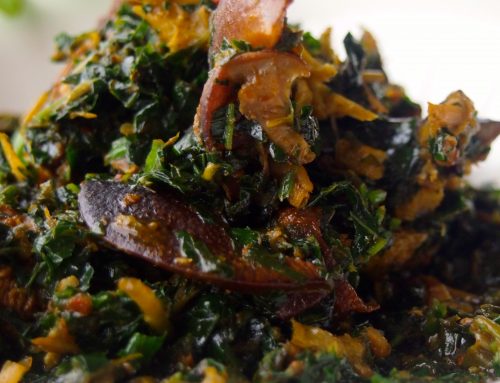

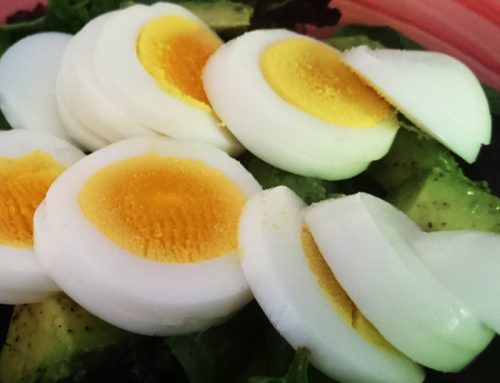


This is really good stuff Banji thanks 🙏🏿